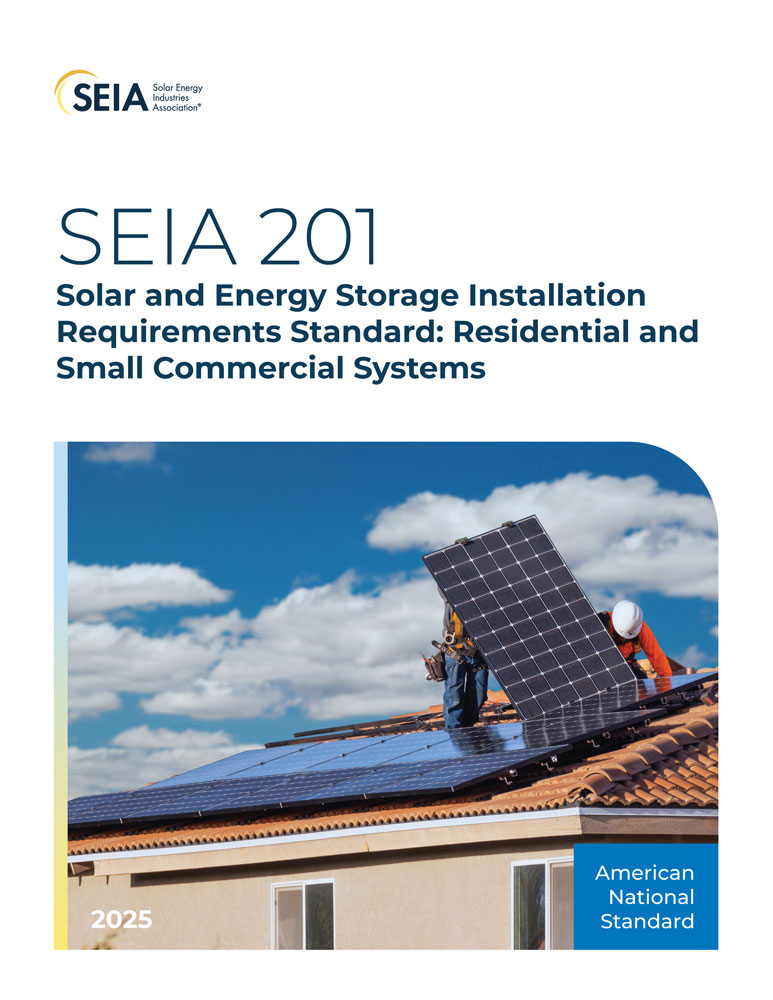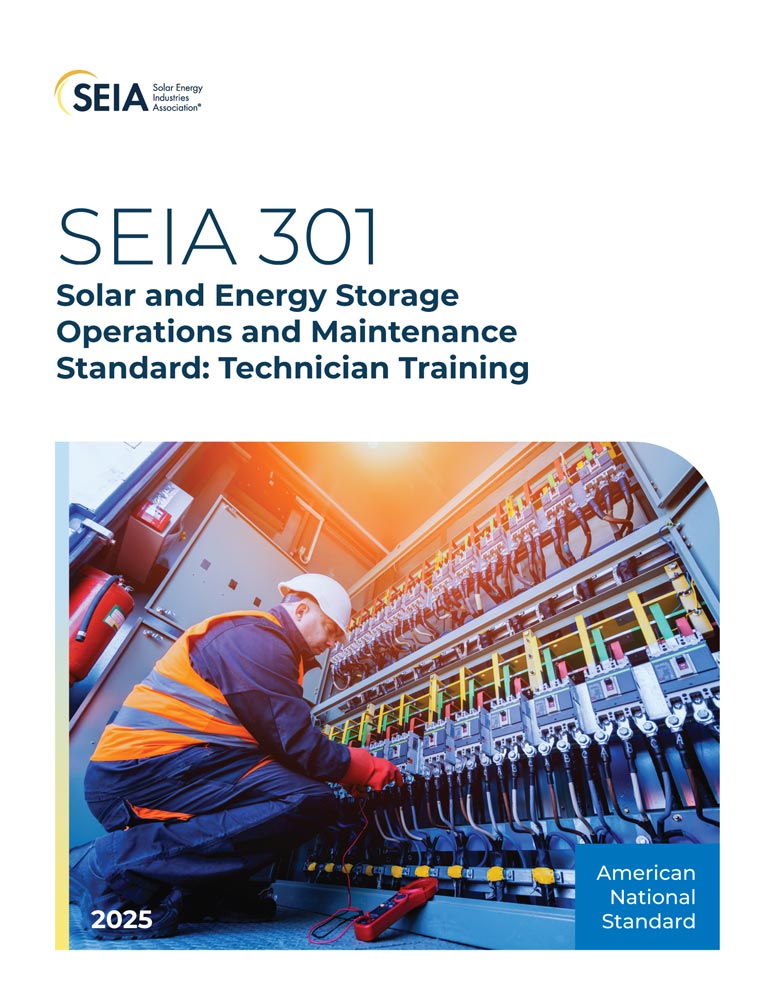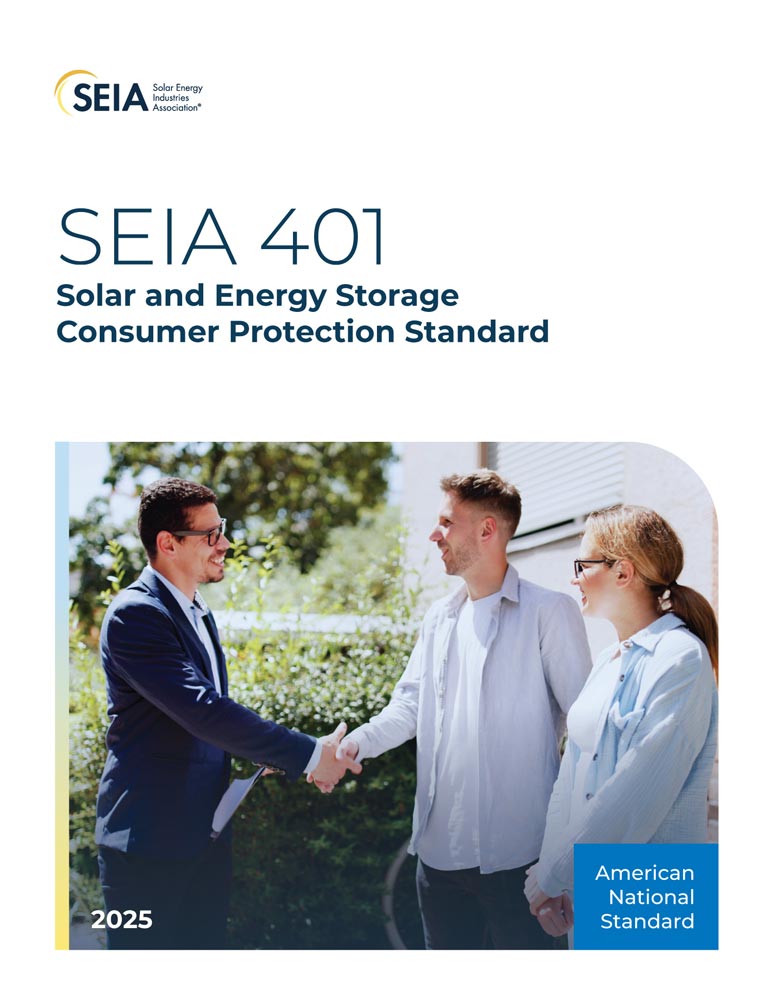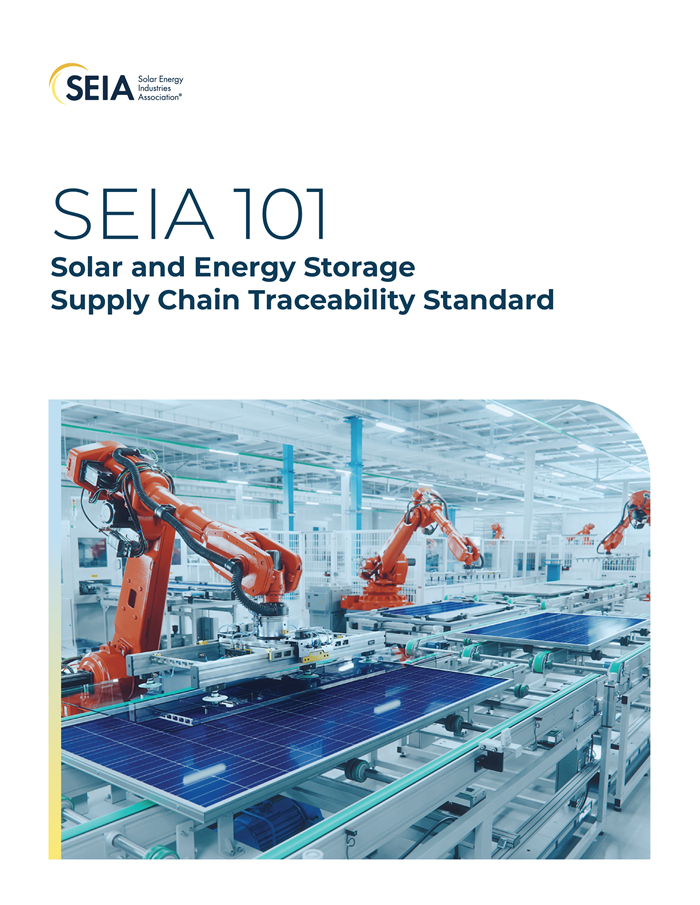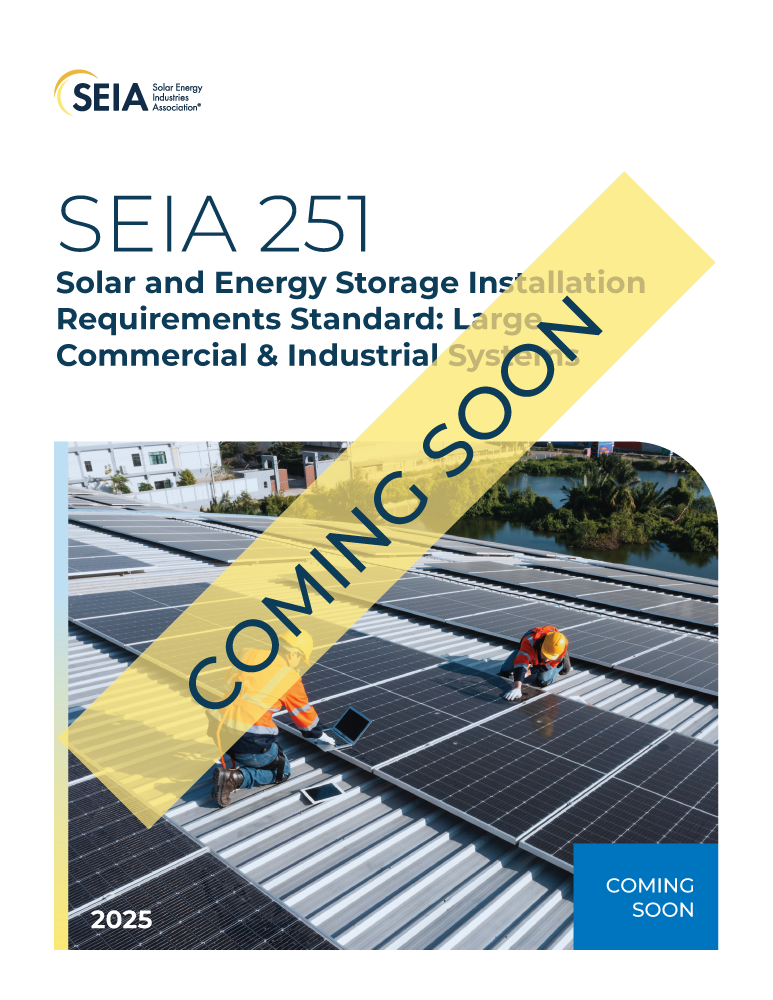Solar & Energy Storage Standards Strengthen Trust in Our Industry
SEIA’s national standards show that solar and energy storage technology is ethically and sustainably sourced, our equipment retains quality throughout its lifetime, and our professionals conduct business responsibly.
Increase Consumer Confidence
Guidelines for quality and safety promote acceptance of our products and services
Improve Safety
SEIA standards share expertise to help protect our consumers and employees from harm
Expand Market Access
Standards make the businesses in our industry more competitive and poised for growth
Promote Continual Improvement
A culture of compliance encourages everyone in our industry to strive for greatness
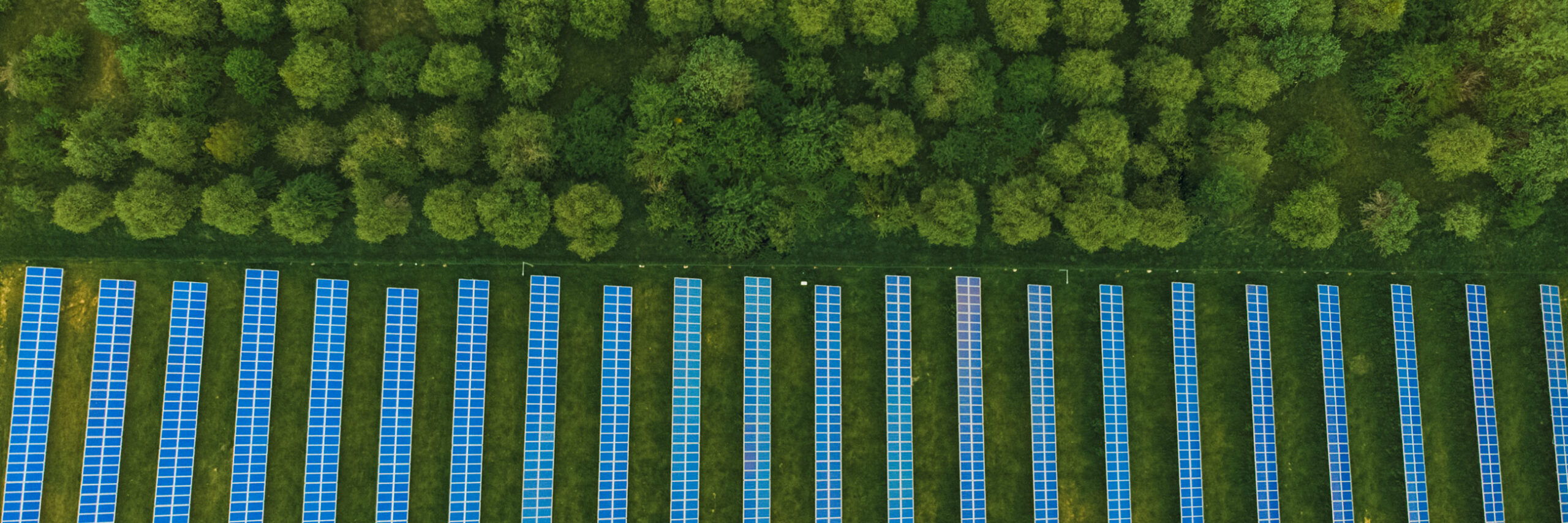
Already a member of SEIA?
support
Frequently Asked Questions
Find out why SEIA has created national standards for solar and energy storage, the processes we followed to create industry standards, and how your organization can benefit from implementing SEIA standards.
A SEIA standard is a document with uniform guidelines developed through an inclusive, consensus-driven process that helps assure solar and energy storage systems are handled ethically, sustainably, and responsibly.
Uniform standards build trust and confidence in our industry, ensuring that our products and services maintain a level of quality, our professionals work with integrity, and we all promote public safety as we create the future of energy.
SEIA standards affect companies and individuals involved in any stage of the lifecycle for solar and energy storage systems from raw material sourcing, product manufacturing, shipping and transportation, system design and engineering, installations, operations, and recycling.
Get involved with standards that align with your company goals and fit your strategic vision. Seek input from key stakeholders – employees, customers, and suppliers – and choose the standards that will benefit your organization the most.
First, evaluate business practices and look for ways that existing methods differ from those described in the standard. Write new or modified procedures and provide staff training. Monitor compliance, invite feedback, and stay informed about revisions to the standard.
There are three steps: standards development, public review and comment, and publication. First, a technical committee drafts the standard and votes to approve it. Next, SEIA invites public comments. The committee may revise the draft standard based on comments received. Finally, once comments and other issues are resolved, SEIA’s Executive Standards Committee votes to approve the standard and submits it for final approval by the American National Standards Institute (ANSI) and publication by SEIA.
SEIA submitted documentation of its standards development procedures to the American National Standards Institute. ANSI reviewed the procedures. SEIA has agreed to maintain compliance with ANSI’s requirements and oversight. ANSI approved SEIA as an accredited standards developer on May 31, 2023.
Approval as an ANSI-accredited standards developer has enabled SEIA to convene industry stakeholders and develop solar and energy storage standards addressing installation requirements, supply chain traceability, consumer protection, decommissioning, recycling, end-of-life management, and more.
